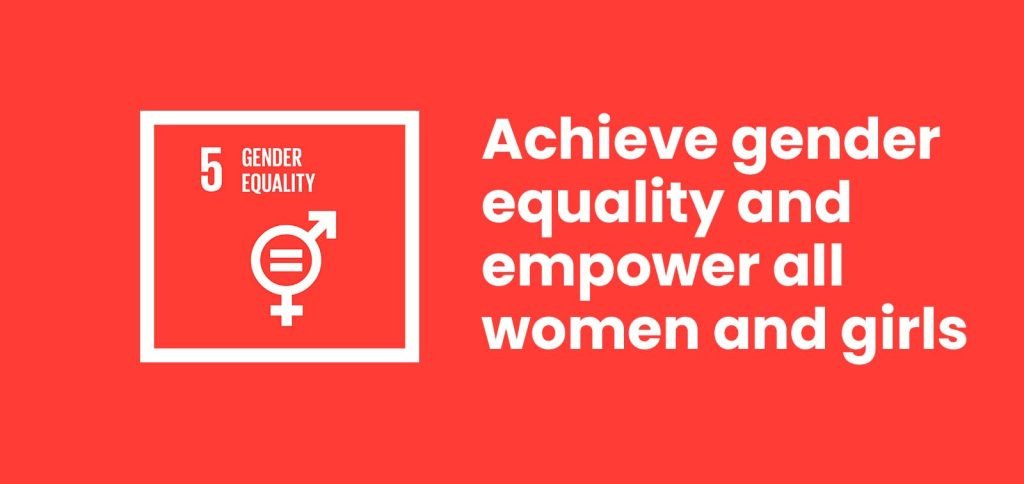The Global Gender Gap Report 2022 states that gender parity is not recovering, and it will take 136 years to close the global gender gap. This is clear that the endless fight for gender equality requires everyone to be involved in order to eliminate gender inequality.
The initiative of achieving full gender equality, therefore, remains insoluble in the midst of current global crises affecting mostly women in addition to patriarchal traditions and norms in different countries that hinder women to participate fully in areas that affect their well-being and future.
Despite the documented and reported progress towards achieving gender equality, women continue being marginalized and underrepresented. Evidently, the progress made is insufficient as the gender imbalance is unchanging.
Thus, after all the years of advocating and fighting for gender equality, gender inequality still exists.
This is evident by the continuation if not repetition of “reaffirming and strengthening political commitment to the realization of gender equality and the empowerment of women and girls.”
Therefore, progress made toward gender equality is repeatedly accompanied by further calls for action.
Gender inequality varies in different societies and takes various forms. Both women and girls are largely underrepresented and are subject to stereotypes, stigma, and femicide or violence.

Besides this, the impacts of the COVID-19 pandemic, accelerating climate change, disasters, and geopolitical conflicts have intensified gender inequality. As a result, this has adversely affected women’s rights across the world.
Global crises
Observably, the most urgent issue around the world is climate change. Climate change impacts are unprecedented, especially on women as it leads to poverty. For example, climate change has devastating effects on mass agricultural production.
As crucial as climate change is, it is imperative that women are prioritized in today’s society that is embedded with such challenges that require the inclusion of women. This is because women are more vulnerable compared to their counterparts.
UN Women’s Chief and Executive Director, Sima Bahous has highlighted the need for women’s leadership at all levels and the role played by women in important areas.
Around the world, women struggle to recover from natural disasters in addition to other catastrophic effects of global warming. For most women, the lack of financial knowledge as well as freedom restricts them to look out for themselves.
The ongoing crisis in Ukraine is putting pressure on women. For example, in rural East and Southern Africa as it raises the strain on critical supply chains in the agricultural sector and food supplies in sub-Saharan Africa.
In addition, UN Women reported that “women are systematically underrepresented” in the processes of decision-making, for instance concerning COVID-19 recovery and response.
Thus, lately, a joint report by UN Women and UN Development (UNDP) on Government Responses to COVID-19 revealed the reason for requiring stronger women’s representation and leadership during emergencies and beyond.

Leadership roles and Representation
Without taking away the progress made and goals achieved so far, there have been efforts directed toward gender equality.
For example, with the increase in women’s leadership. It has been reported in 2020 that the representation of women in politics has doubled in the last 25 years. However, achieving gender parity in political life is “far off”.
In line with women’s representation in sports, the Tokyo 2020 Olympics were projected to have close to equal representation of women and men in competition for the first time in its history.
Recently, the UN declared International ‘Women in Diplomacy’ Day to emphasize women’s participation in achieving peace and democracy.
Taking this into consideration, the fact remains, that most women are still left out despite a few other women being empowered and recognized. Thus, a majority of women continue to be underrepresented as well as excluded in high political positions.
As women continue pursuing careers in fields traditionally dominated by men, still underestimation, judgment, and the need to work twice as hard as their male counterparts are part of this.
In addition to this, most societies are still rooted in patriarchy as a result limiting women’s ability to participate in matters that adversely affect them even in the future.
This ultimately undervalues and marginalizes both women and girls. Therefore, significant steps are needed to be taken for more women to take the lead.
In the words of Michelle Bachelet, President of Chile: “When one woman is a leader, it changes her. When more women are leaders, it changes politics and policies.”
The participation of women in politics leads to fair gender policies. Various scholars argue that “politics is still considered a male business with multiple social and cultural barriers preventing women from taking part”.
Hence, senior leaders have the mandate to fully prioritize gender equality since it is linked to sustainable and economic development. Above all, women have a critical role to play in all the Sustainable Development Goals (SDGs).

Above all, the unending fight for gender equality is a reminder that no country has fully achieved gender equality and that progress in the past years has been slow.
Therefore, this is more than a reason to continue advocating for gender equality, and it justifies the urgent need for the world to further incorporate gender equality at the top of every agenda.
All in all, the fight for gender equality continues and for that reason, everyone has a role to play because eventually “women’s liberation will be men’s liberation too.”
*The writer is BSc. (Hons) Development studies graduate from the Lupane State University of Zimbabwe.
*All views and research claims mentioned by the author in the article are solely his/her own and The Diplomatic Insight and Institute of Peace and Diplomatic Studies do not necessarily share the position or bear the responsibility for their accuracy.















